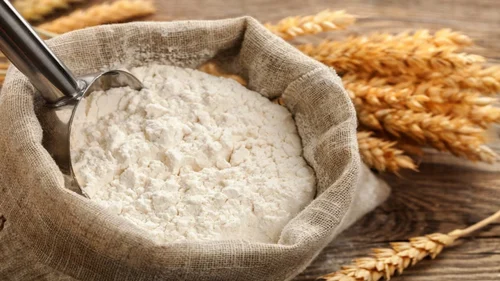Organic Wheat Flour
₹37.0
| Packaging Type | Loose |
| Usage/Application | Cooking |
| Speciality | High in Protein |
| Type | Chapati Flour |
| Shelf Life | 3 Months |
| Organic | Yes |
You must be logged in to post a review.
Q & A
Organic products are generally considered more sustainable compared to conventionally produced products, primarily due to the following reasons:
Environmental Impact: Organic farming practices promote biodiversity and aim to minimize the use of synthetic pesticides and fertilizers. Instead, organic farmers rely on natural fertilizers, crop rotation, and biological pest control methods. This reduces the environmental impact of agriculture, such as water pollution, soil degradation, and harm to beneficial insects and wildlife.
Soil Health: Organic farming practices focus on building and maintaining healthy soil. This involves practices like composting, crop rotation, and the use of cover crops. By avoiding synthetic chemicals and relying on organic matter, organic farming helps preserve soil fertility, structure, and microbial diversity, which are crucial for long-term sustainability.
Reduced Chemical Exposure: Organic products are grown without the use of synthetic pesticides, herbicides, and genetically modified organisms (GMOs). This reduces chemical exposure for farmers, farmworkers, and consumers. Additionally, it decreases the risk of pesticide residues in food, water, and the environment.
Conservation of Resources: Organic farming promotes the efficient use of resources. It typically relies on natural methods to manage pests and diseases, reducing the need for excessive water usage, energy consumption, and fossil fuel-based inputs. Organic practices also emphasize water conservation and efficient irrigation techniques.
Climate Change Mitigation: Organic agriculture has the potential to contribute to climate change mitigation. Organic farming practices often prioritize carbon sequestration by increasing soil organic matter content, enhancing the soil's ability to absorb and store carbon dioxide from the atmosphere.
While organic products have several sustainability advantages, it's important to note that the overall sustainability of a product is influenced by various factors beyond its organic status. Factors such as transportation, packaging, fair labor practices, and the overall supply chain also play a significant role in determining a product's sustainability. It's essential to consider these factors holistically when assessing the sustainability of any product or system.
General Inquiries
There are no inquiries yet.




Reviews
There are no reviews yet.